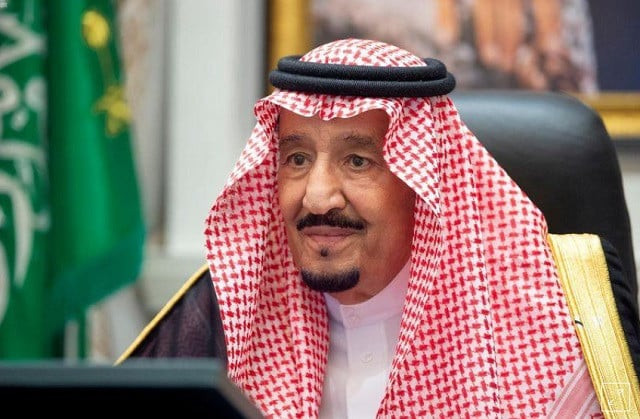Saudi king urges Iran to end 'negative' behaviour in region
Riyadh earlier accused Tehran of aiding Yemeni rebels in launching deadly attacks on the country

Saudi Arabia's King Salman urged arch-rival Iran on Thursday to end its "negative behaviour" in the region, after Riyadh accused Tehran of aiding Yemeni rebels in launching deadly attacks on his country.
However, the monarch who turns 86 on Friday appeared to soften his hawkish tone towards the Islamic republic, after having urged world powers last year to take a "firm stance" against Tehran.
Salman, addressing the Shura council, the top government advisory body, virtually for a second year in a row, spoke for less than four minutes.
He read slowly from a white piece of paper, pausing at times, in a speech broadcast three hours after its initial scheduled time.
The official Saudi Press Agency later released the king's full statement.
"We hope (Iran) changes its policy and negative behaviour in the region, and it heads towards dialogue and cooperation," he said, according to the statement.
Also read: Human rights abuses in Yemen won’t continue with impunity: UN
"We are following with great concern the Iranian regime's destabilising policy to security and safety in the region."
Riyadh and Tehran have been bitter foes for decades, taking opposing sides in a range of regional conflicts, including in Yemen where Saudi Arabia leads a military coalition against Iran-backed Huthi rebels.
The two sides have held several rounds of talks since April aimed at improving relations.
King Salman, however, accused Iran of "establishing and supporting" sectarian and armed groups in the region.
"We are also following the Iranian regime's support of the terrorist Huthi militia, which is prolonging the war in Yemen and exacerbating the humanitarian situation there, as well as threatening the security of the kingdom."
Yemen has been wracked by civil war since 2014 pitting the government -- supported by the Saudi-led coalition -- against the Huthi who control much of the country's north, including the capital Sanaa.
Also read: Saudi-led coalition hits Yemen rebel camp in ramped up air war
Tens of thousands of people have been killed in what the United Nations describes as the world's worst humanitarian crisis, with over 80 percent of Yemen's population dependent on aid.
The coalition on Sunday accused Iran and Lebanon's Hezbollah group of helping the Huthis launch missiles and drones at Saudi Arabia, where two people were killed last week.
Saudi Arabia has long accused Iran of supplying the Huthis with sophisticated weapons and its Hezbollah proxy of training the insurgents.
Tehran denies the charges, while Hezbollah has dismissed them as "ridiculous".
On oil, King Salman said Riyadh was "keen to keep the OPEC+ agreement working due to its essential role in stabilising oil markets", stressing the importance of all participating countries' commitment to the deal.
The Organization of Petroleum Exporting Countries (OPEC) and allied producers agreed this month to stick to planned increases in output in January, despite the economic uncertainties linked to the Omicron coronavirus variant.



















COMMENTS
Comments are moderated and generally will be posted if they are on-topic and not abusive.
For more information, please see our Comments FAQ